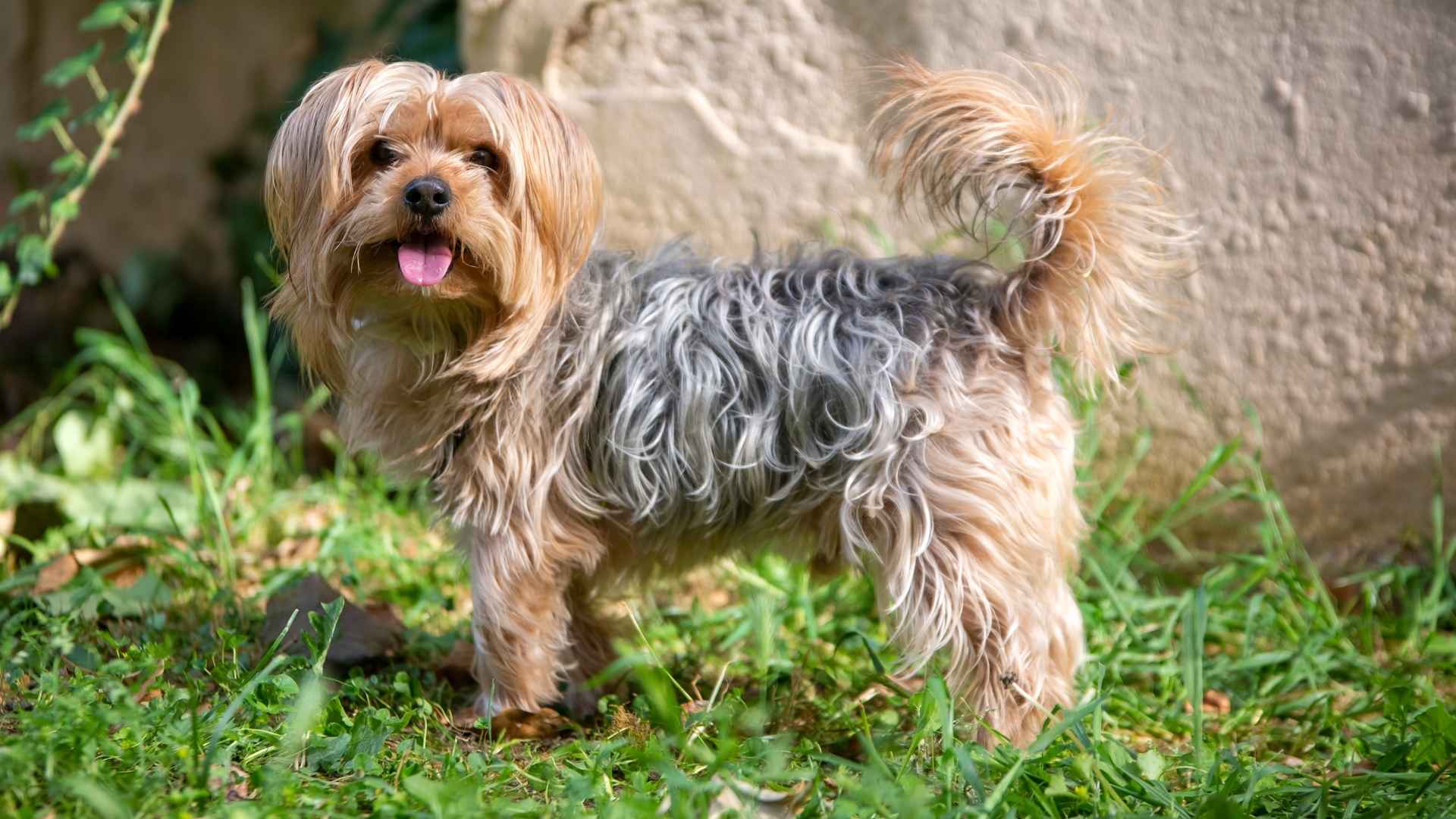A big backyard isn’t a must for every dog. In fact, plenty of breeds are well-suited to small outdoor spaces, or none at all, so long as they get daily walks, stimulation, and time with their humans. If you’re living in a home with limited yard space, you don’t need to give up your dream of having a dog. What matters most is matching the breed’s personality and exercise needs with your lifestyle.
Some breeds are naturally more adaptable, needing less room to roam and more time to bond. They may be compact in size, low-shedding, or have moderate energy levels that make them easy companions in smaller homes. From playful lap dogs to calm, medium-sized pets, these breeds can be perfectly content with a small yard to sniff around and stretch their legs.
Here are 7 dog breeds that don’t need acres of land to live happy, healthy lives.
Dog Breeds That Thrive in Tiny Yards
1. French Bulldog
Key Traits
Size: Small
Temperament: Affectionate, playful, adaptable
Best for: Apartment living, first-time owners, people with limited yard space
Despite their sturdy build and expressive faces, French Bulldogs are surprisingly low-maintenance when it comes to activity. A few short walks and a little playtime each day are enough to keep them happy. Their compact size and quiet nature make them a popular choice for homes with tiny yards or no yards at all.
According to the French Bulldog Club, Frenchies are extremely people-oriented and thrive on companionship. They love being included in household routines and are content curling up beside their humans. They’re generally polite with other pets, though early socialization helps smooth any rough edges.
Their signature bat ears and short muzzle require some care, especially in warm or humid weather. Because of their brachycephalic anatomy, French Bulldogs are prone to overheating and shouldn’t be pushed to exercise in heat. Indoors, they’re happiest in cool, well-ventilated spaces.
Grooming is relatively simple; a quick weekly brushing keeps their short coat in check, but owners should pay attention to their facial folds and nails. Ear cleaning and dental hygiene are also important to prevent common health issues in the breed.
Though some label them as stubborn, most Frenchies are eager to please and respond well to gentle, food-based training. With consistent structure, they can master basic manners and enjoy enrichment through puzzle games or short indoor training sessions.
2. Maltese
Key Traits
Size: Toy
Temperament: Affectionate, alert, gentle
Best for: Seniors, small families, calm households
The Maltese may be small, but this breed is full of charm. Known for their long, white coats and expressive eyes, they have a history of companionship that dates back to ancient Mediterranean cultures. Their affectionate personality makes them a popular lapdog in homes with limited outdoor space.
Though elegant in appearance, the Maltese is a spirited little dog with moderate energy. Daily indoor play sessions and a short walk or two are enough to meet their exercise needs. They enjoy puzzle toys and gentle interaction with their humans, making them ideal for small homes.
Grooming is a big commitment, especially if the coat is kept long. Many owners opt for a shorter trim to simplify upkeep. Regardless of length, regular brushing, cleaning around the eyes, and dental care are essential for keeping them healthy and looking their best.
Training should begin early, as Maltese can be a bit headstrong. They respond well to positive reinforcement but may try to manipulate their way out of things. Confidence-building and early socialization are key to managing their barky tendencies around strangers.
This breed bonds deeply with its people and doesn’t like being alone for long. If left solo too often, they can develop separation anxiety. A home with a steady routine and attentive companionship suits them best.
3. Boston Terrier
Key Traits
Size: Small to medium
Temperament: Friendly, intelligent, lively
Best for: Small families, city dwellers, first-time owners
Boston Terriers are one of the most adaptable small breeds around. With their tuxedo-like markings and cheerful expression, they bring charm to every room and yard. They’re highly adaptable and can live happily in compact homes with minimal outdoor space.
These dogs are moderately energetic and do well with structured playtime. A daily walk and a few games of tug or fetch indoors are usually enough to keep them stimulated. They’re quick learners and benefit from interactive toys and gentle training.
Boston Terriers are extremely people-focused and thrive in close contact with their families. They’re affectionate but not overly clingy, making them an excellent fit for those who want a playful companion without constant neediness.
Their short coats require little grooming, but their prominent eyes and snub noses need occasional attention. As with other brachycephalic breeds, they can overheat easily and may snore or snort during activity or sleep.
Naturally social, Boston terriers tend to get along well with other pets and children when introduced properly. Early socialization helps channel their curiosity and keeps their natural watchdog instincts in check. They’re bright, bold, and up for just about anything.
4. Cavalier King Charles Spaniel
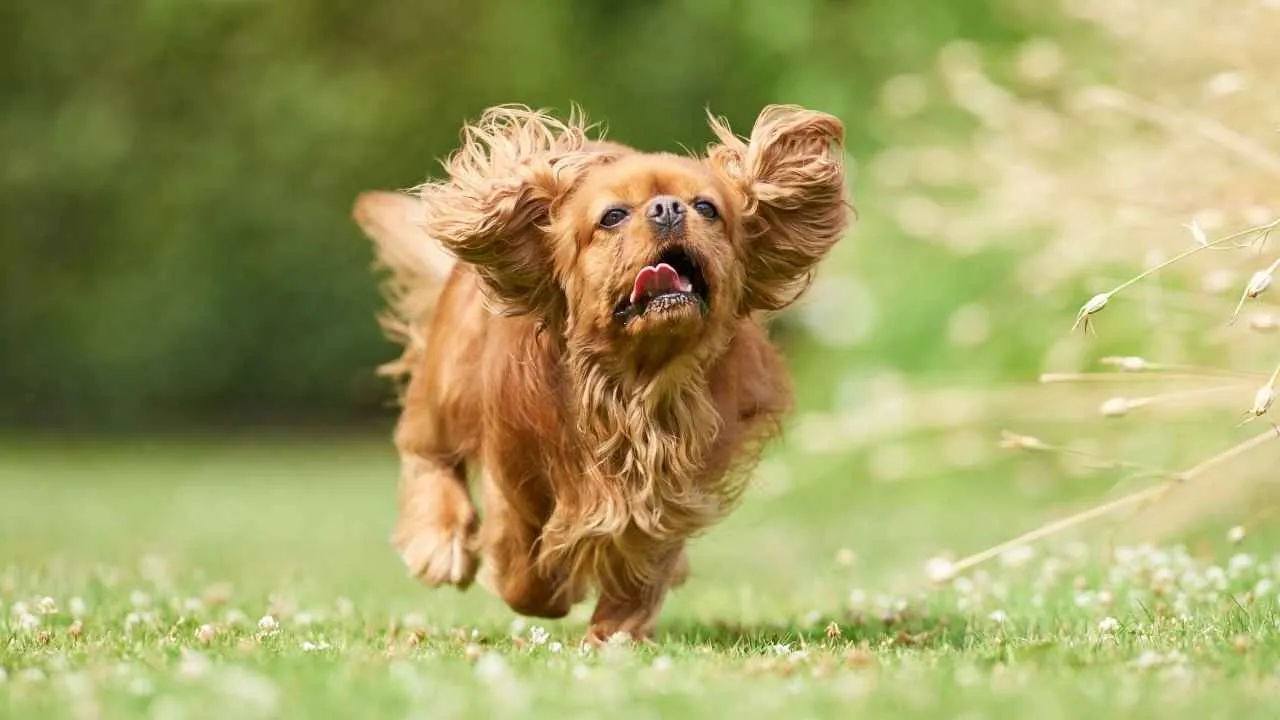
Key Traits
Size: Small
Temperament: Affectionate, calm, social
Best for: Families, apartment dwellers, first-time dog owners
Cavalier King Charles Spaniels are gentle dogs with a rich history dating back to 17th-century England. They were bred for companionship, and that legacy shows in their affectionate, easygoing nature. With their silky ears and expressive eyes, they tend to win people over quickly.
These dogs adapt well to small yards or compact homes as long as they get daily walks and attention. They love lounging near their people and following them from room to room. Their energy levels are moderate, so short play sessions and strolls are usually enough to keep them content.
Cavaliers do best with consistent routines and human company. While they can manage alone time in short periods, they’re sensitive and prone to separation anxiety if left alone too often. They also respond well to positive reinforcement and gentle handling during training.
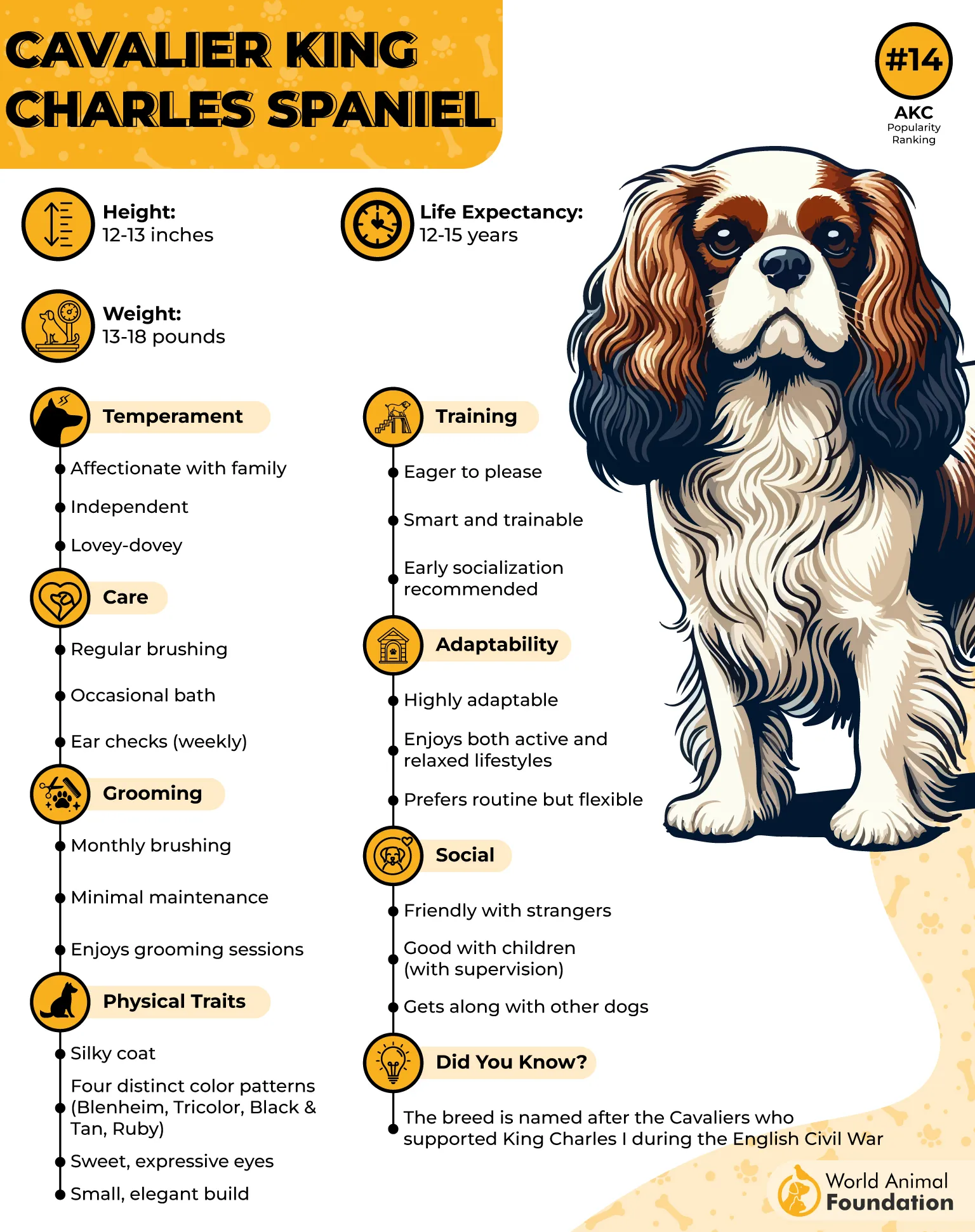
Grooming is fairly simple, though their medium-length coat does require weekly brushing to avoid tangles. Watch for buildup around the eyes and ears, and trim nails regularly. Regular checkups are essential, especially for heart health and joint monitoring.
Despite their aristocratic look, Cavaliers are sturdy little companions. They’re sociable with other pets and children and typically get along well in busy households with a calm, friendly attitude.
5. Yorkshire Terrier
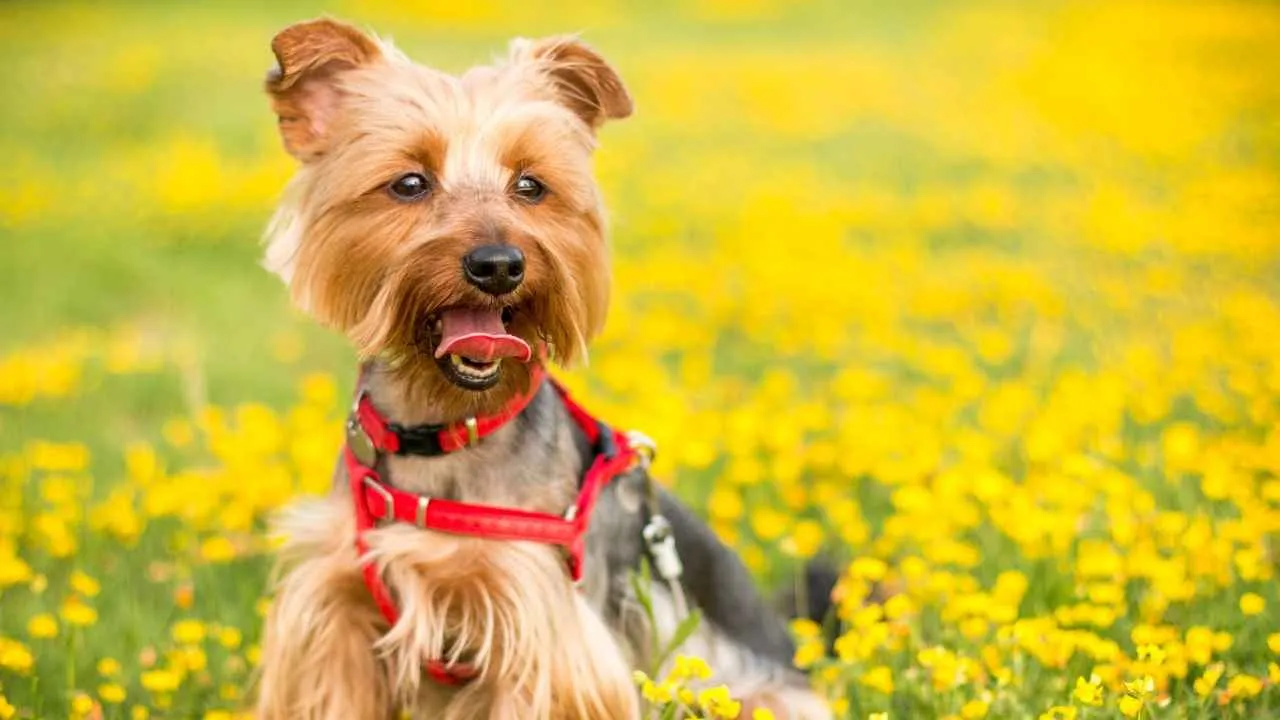
Key Traits
Size: Toy
Temperament: Bold, intelligent, spirited
Best for: Singles, urban homes, people who enjoy grooming
Yorkshire Terriers may be small in size, but they have big personalities. Originally bred to hunt rats in textile mills, these dogs are alert and confident, often behaving as if they’re twice their actual size. They thrive in homes where they can be the center of attention.
They adapt easily to small yards or even indoor play if walks and mental stimulation are part of the daily routine. Their energy is better managed through games and short bursts of activity than long runs. Yorkies love puzzle toys and interaction that keeps their sharp minds busy.
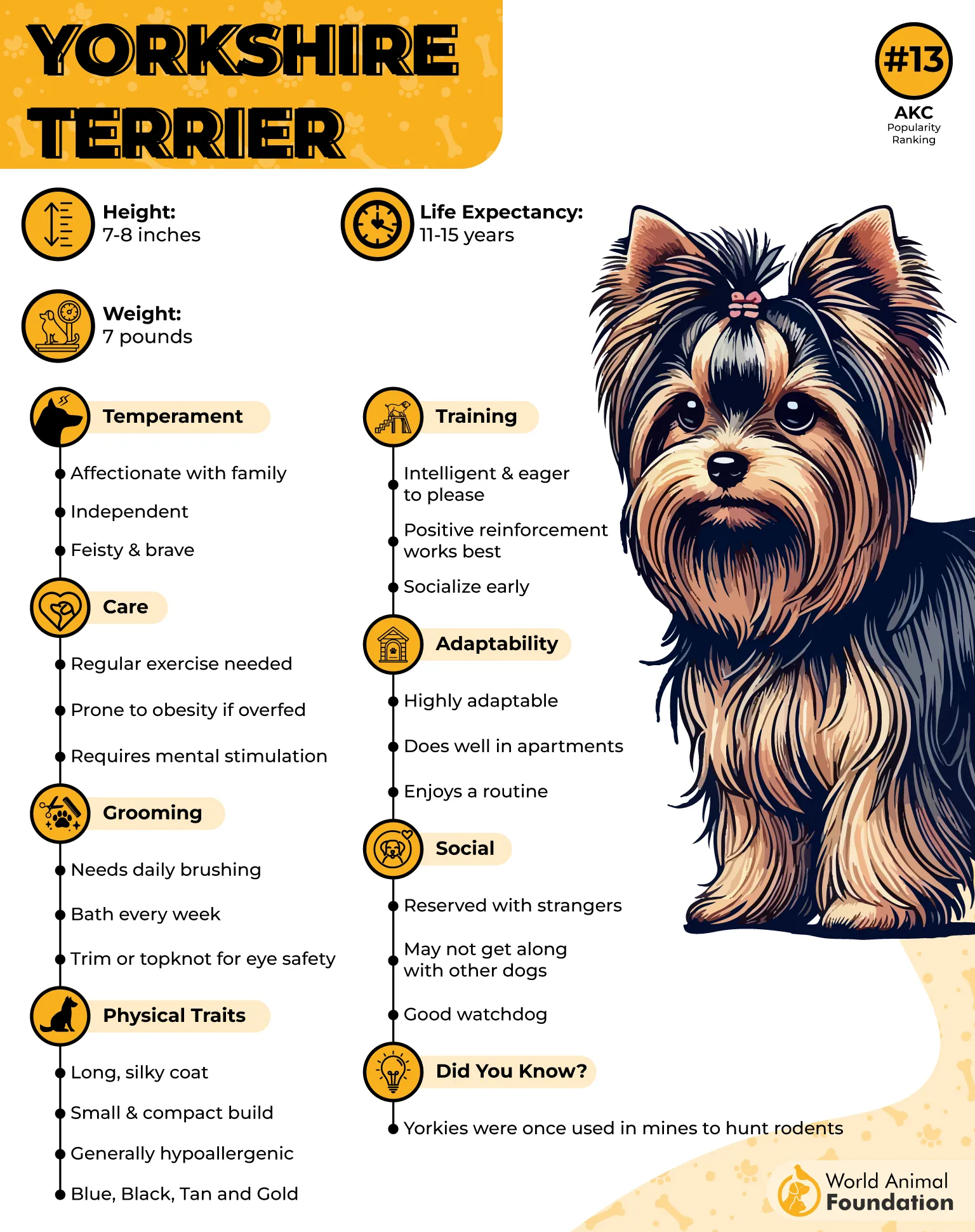
As per PetMD, these dogs are prone to barking, especially when bored or understimulated, but early training and boundaries help curb excessive vocalizing. They’re loyal to their families but may be wary of strangers, making them decent watchdogs despite their size.
Grooming is a major part of Yorkie ownership. Their fine, silky coats tangle easily and require frequent brushing, especially if left long. Many owners opt for a trimmed “puppy cut” to reduce upkeep. Dental care is also essential due to a tendency toward dental disease.
Though they need some structure and regular grooming, Yorkies are loving and animated companions who bring joy and character into small homes. They’re best suited to attentive owners who appreciate a little spunk and sparkle.
6. Chihuahua
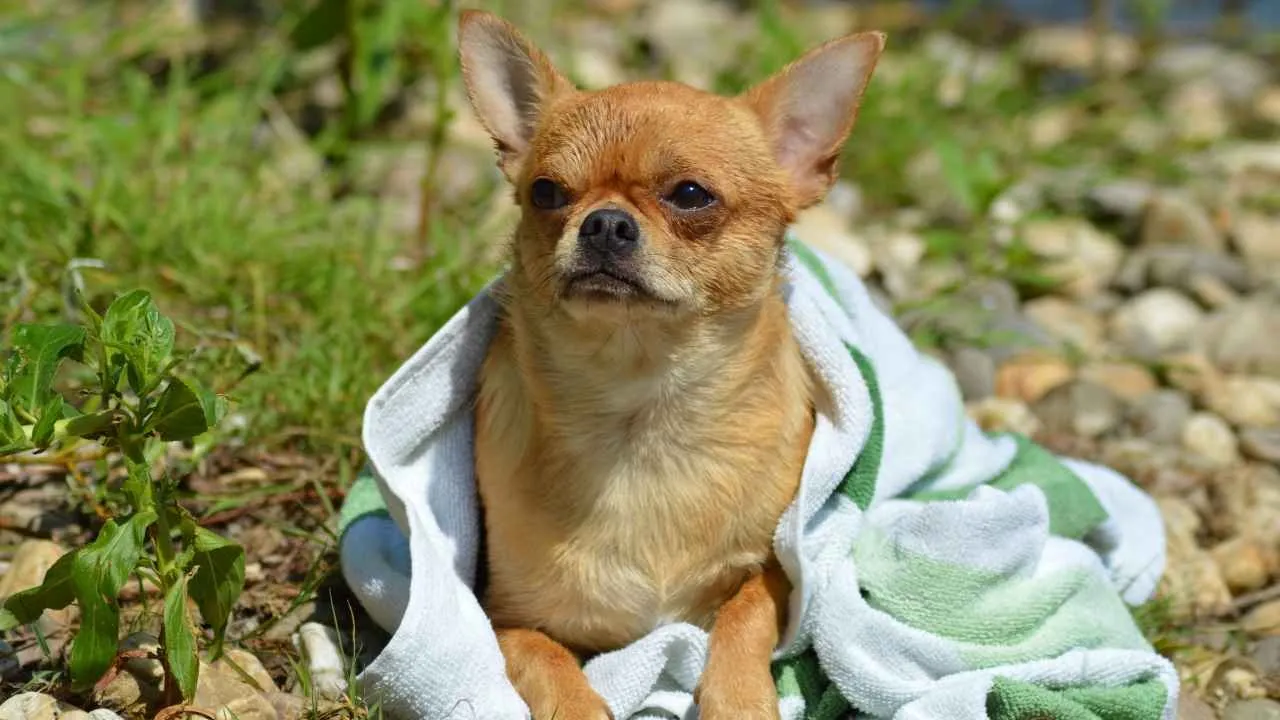
Key Traits
Size: Extra small
Temperament: Lively, loyal, alert
Best for: Seniors, city dwellers, experienced small dog owners
As per Britannica, Chihuahuas are among the tiniest dog breeds, but their bold attitude makes them anything but fragile in personality. They’ve been companions for centuries, with roots tracing back to the ancient Techichi dogs of Mexico. Their unique stature and big-dog confidence have made them iconic.
These compact pups are perfect for homes with small or no yards, as they get plenty of exercise just following their people around. A few indoor games, short walks, or safe outdoor play are typically enough to meet their needs. Because of their size, they require supervision around large dogs and children.
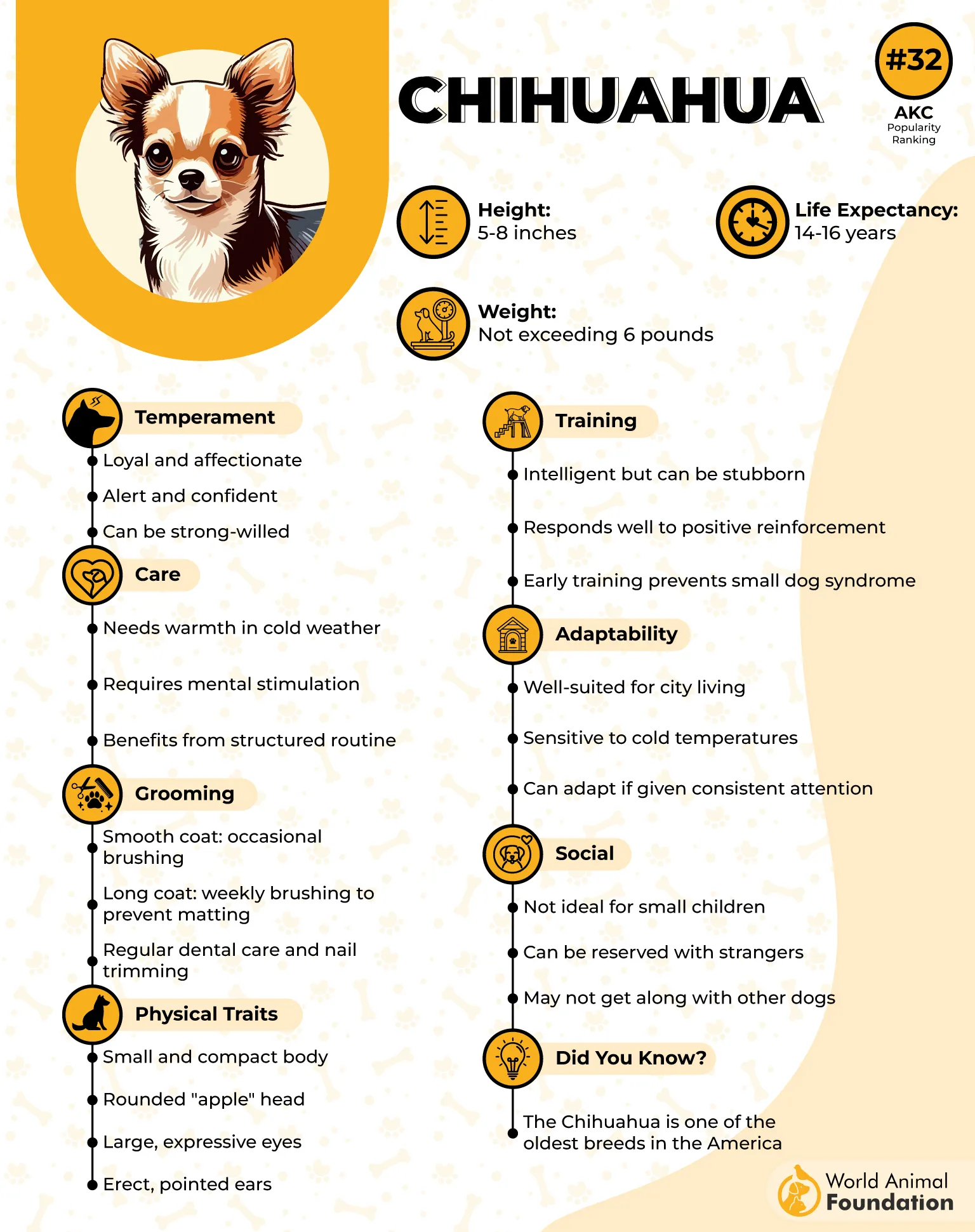
Chihuahuas are often deeply bonded to one person, which can make them very loyal but also prone to separation anxiety and guarding behaviors. Socialization from puppyhood is essential to help reduce fear-based barking and skittishness in unfamiliar settings.
Their grooming needs vary by coat type. Short-haired Chihuahuas need occasional brushing, while long-haired types require more frequent grooming to prevent matting. Both varieties need warmth in cooler climates, as they’re sensitive to cold due to their small body mass.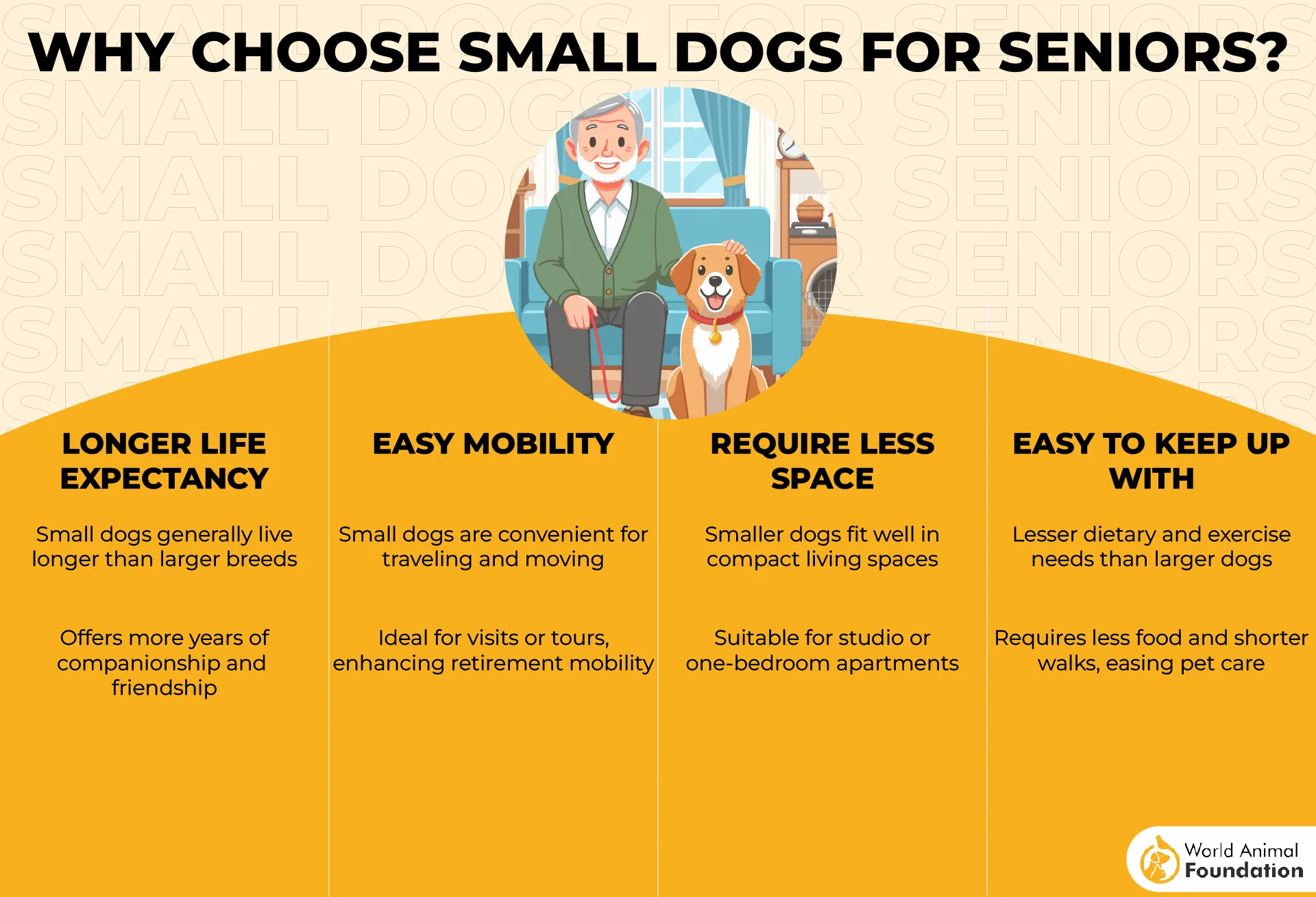
Despite their size, Chihuahuas need confident handling. They can develop behavioral issues if overpampered or undertrained, so consistent expectations and gentle discipline go a long way in creating a happy, secure pet.
7. Dachshund
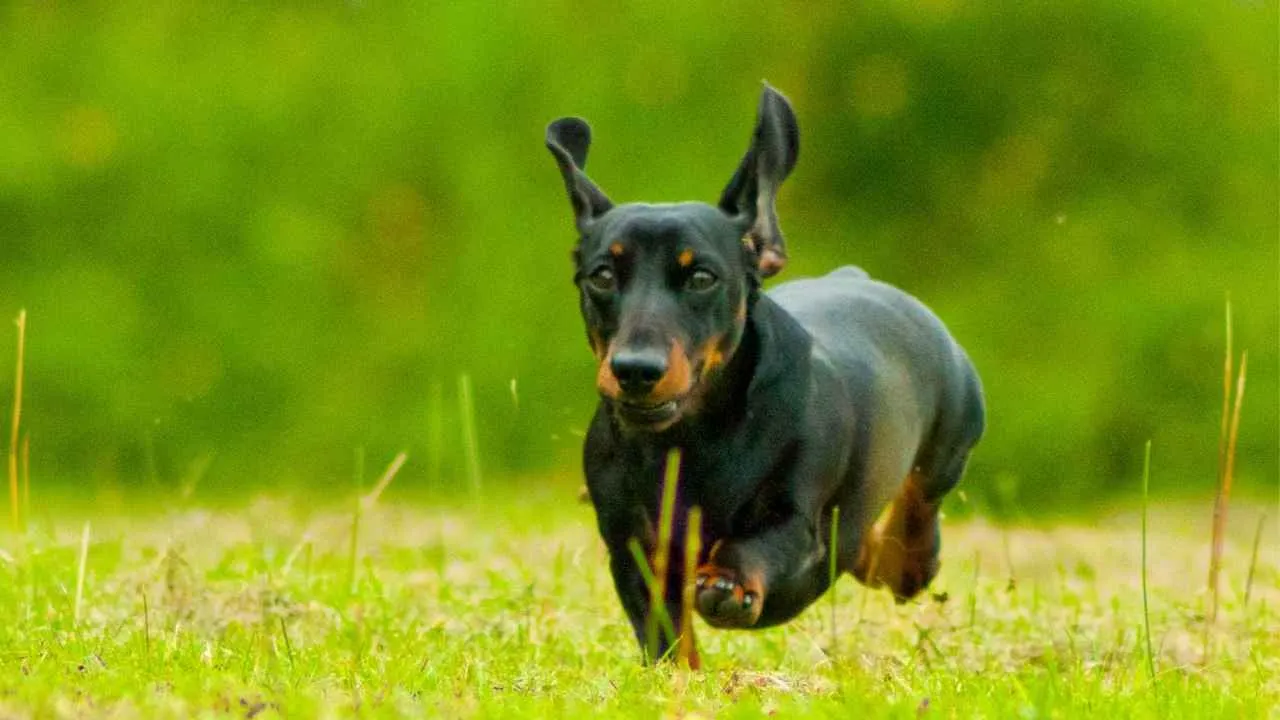
Key Traits
Size: Small to medium
Temperament: Curious, stubborn, loyal
Best for: Experienced owners, homes with secure play areas
Dachshunds are instantly recognizable thanks to their long backs and short legs. Originally bred to hunt badgers and small animals, these dogs are full of determination and spunk. They’re playful companions that love investigating their surroundings.
Despite their compact size, Dachshunds are energetic and need regular exercise. A small yard can be enough if paired with daily walks and mental challenges like nose work or puzzle games. Miniatures need slightly less exercise than standard sizes, but still enjoy being active.
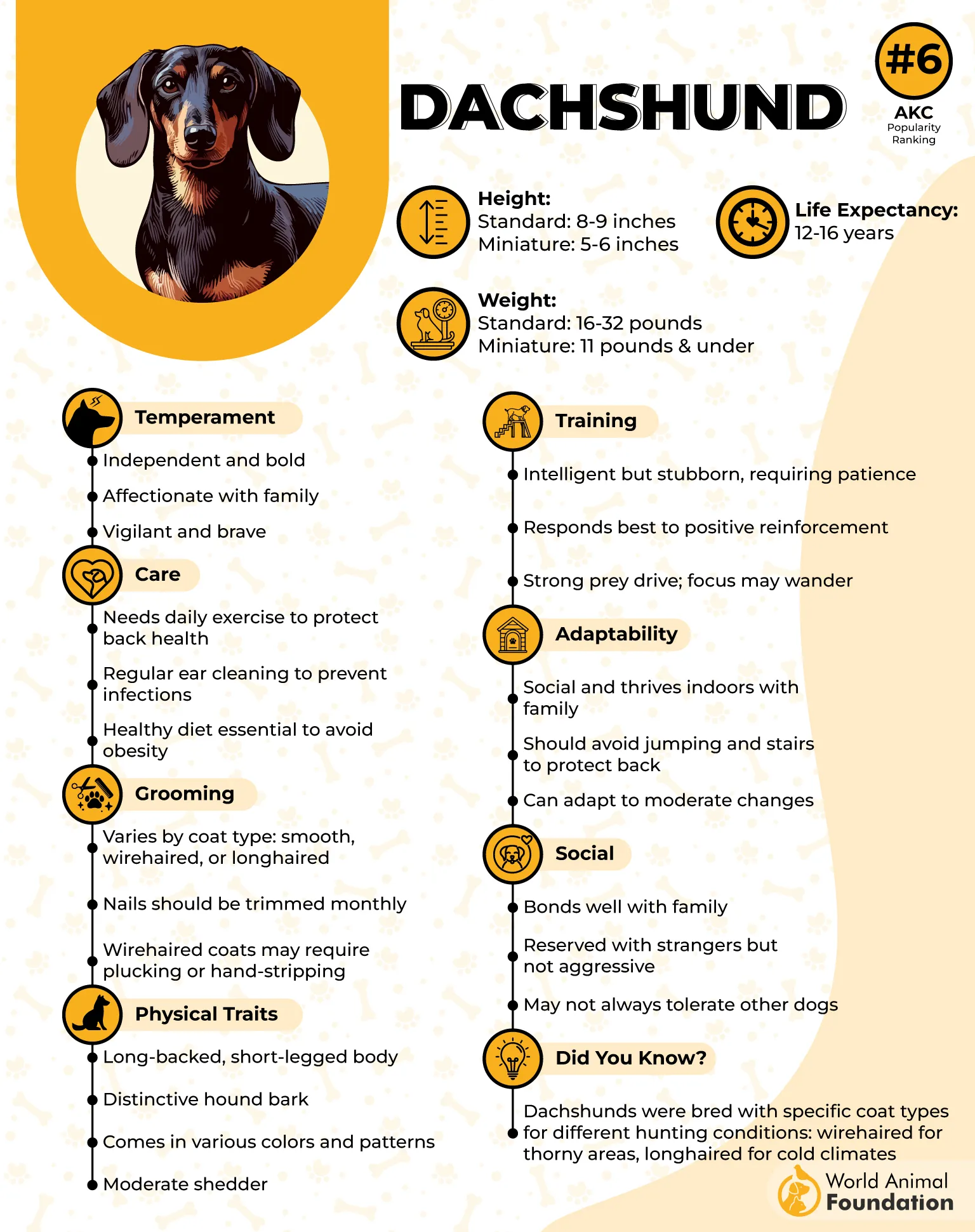
Training a Dachshund can be a test of patience. They’re clever but independent, and their strong prey drive can make them distracted. Positive, reward-based methods work best, and early socialization helps reduce barking and wariness around strangers or other pets.
Coat type affects grooming needs; smooth coats are low maintenance, while wirehaired and longhaired types require regular brushing and occasional trimming. All Dachshunds benefit from routine dental care and nail maintenance.
Their unique body structure makes them prone to back injuries, especially if they jump or climb stairs often. Owners should use ramps and keep their weight in check to help avoid intervertebral disc disease. With care and structure, Dachshunds make entertaining, loyal companions.
Conclusion
Not every dog needs wide-open fields to live a full and happy life. Many dogs, especially those from toy breeds and small dog breed groups, are content with a bit of fresh air, a cozy spot on the couch, and some quality time with their people. From calm dogs that make great companions for laid-back households to active little pups who enjoy short bursts of play, there’s a perfect fit for every kind of home.
While exercise requirements vary across breeds, even small or medium-sized dogs benefit from regular activity, be it long walks, indoor games, or low-impact dog sports. What matters most is meeting their needs based on size, temperament, and activity level. Some dogs may need more engagement than others, but that doesn’t always mean a lot of exercise; many are perfectly suited to houses with tiny yards.
Before choosing the best dog for your lifestyle, consider their life span, grooming needs, and whether they’re easily trained or better suited to experienced handlers. Reputable breeders or shelters can help match you with the right pup, one that gets along with cats, kids, or just wants to be your shadow. With the right match, even a small yard can feel like a whole lot of home.


